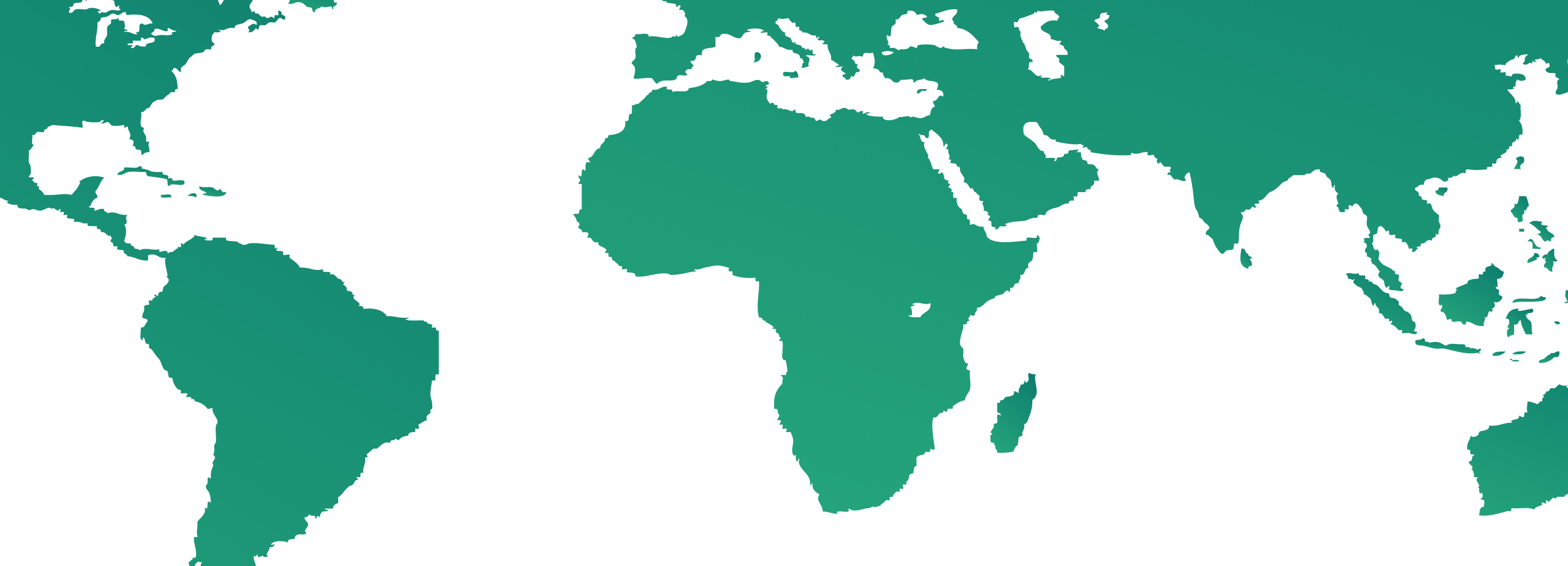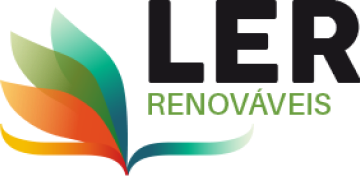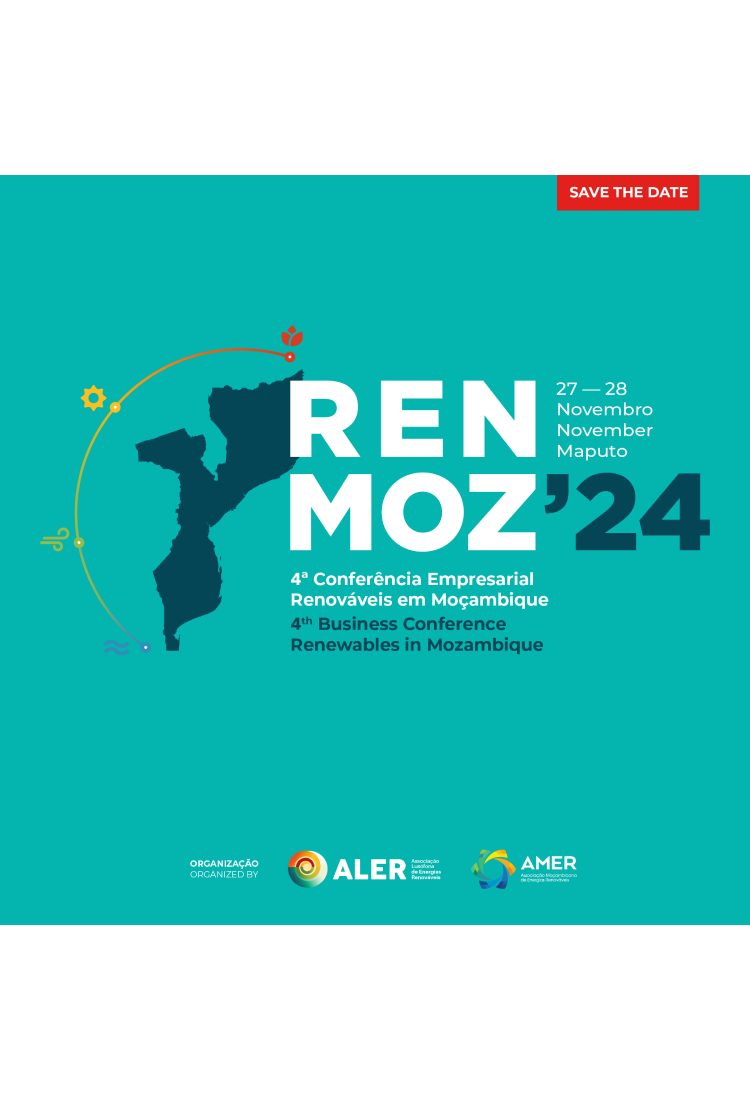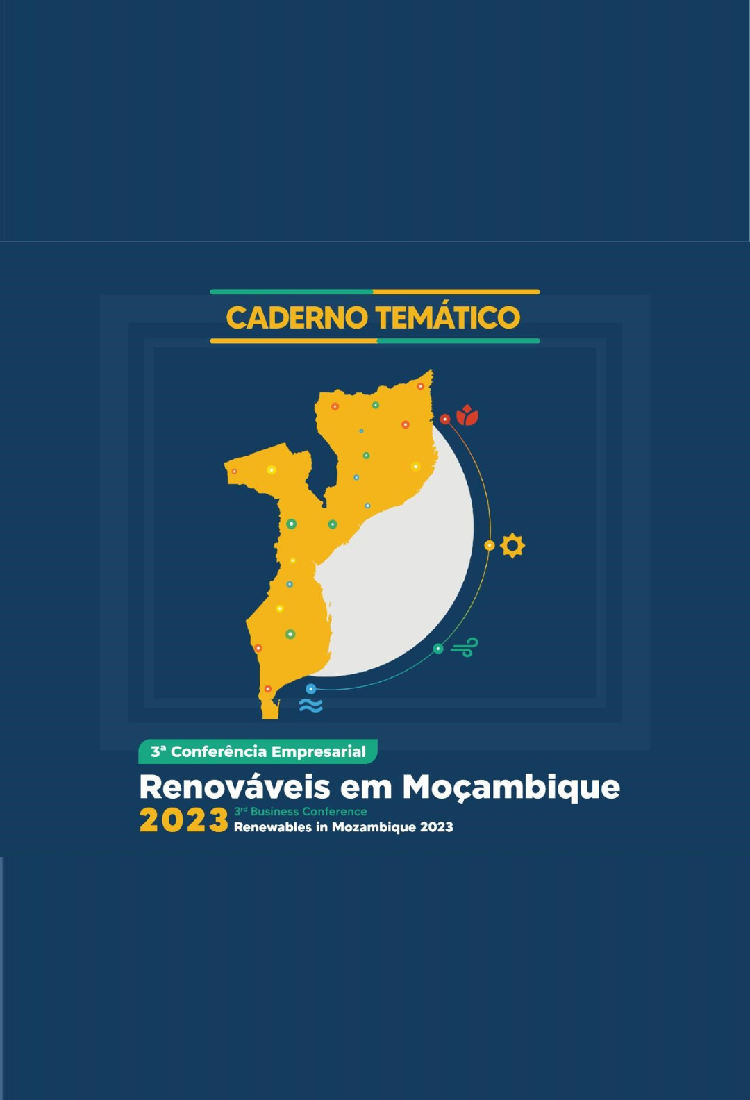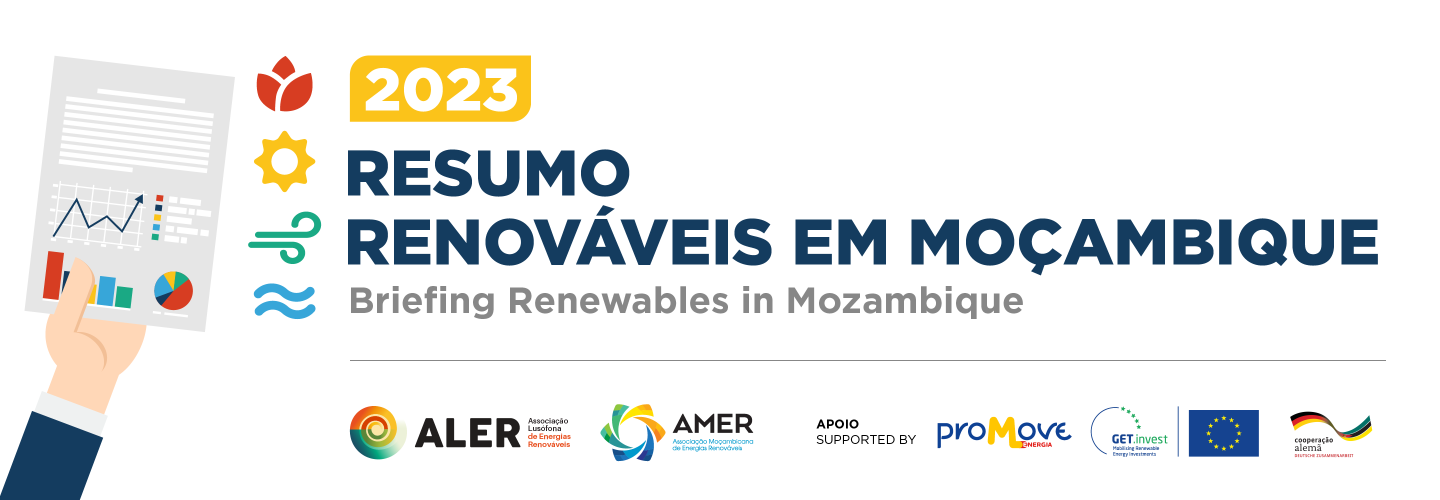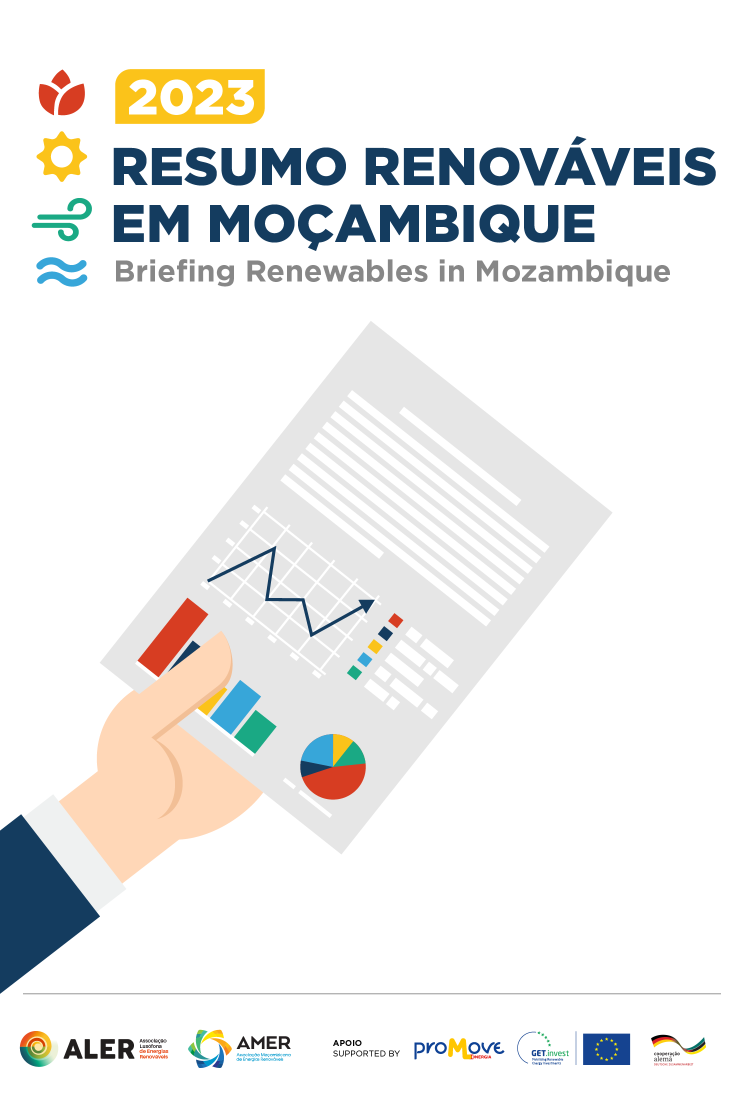Countries' Week: A country per day
Online
Mainstreaming Gender-Responsiveness
Online
Live Presentation: Open Source Tools for Renewable Energy Businesses
Online
Luanda International Fair
Luanda, Angola
11th Meeting of ECREEE’s National Focal Institutions
Niamey, Niger
Mastering Wind Power
Online
Maputo International Fair (FACIM)
Marracuene, Mozambique
Energy Storage and Green Hydrogen Webinar
World Hydrogen & Renewables Iberia
Riu Plaza, Madrid, Spain
Legal Circle | ESG Conference - Trends and challenges in geographical diversity
Maputo, Mozambique
40th European Photovoltaic Solar Energy Conference and Exhibition (EU PVSEC 2023)
CCL Lisbon Congress Centre, Portugal
17th edition of the Microgrid Global Innovation Forum
London, United Kingdom
8th Mozambique Gas & Energy Summit & Exhibition
Maputo, Mozambique
ENERH2O Energy and Water Innovation& Technology
Porto, Portugal
Africa Renewables Investment Forum (ARIF)
Nairobi, Kenya
Renewable Energy Forum Africa (REFA)
Nairobi, Kenya
Sustainable Energy Forum (ESEF 2023)
Cidade da Praia, Cape Verde
International Renewable Energy and Energy Efficiency Fair
Cidade da Praia, Cape Verde
XIV RELOP Annual Conference: Integration of Energy Vectors
Sal island, Cape Verde
2nd Angola-European Union Business Forum: Business Opportunities for Angola and the EU
Luanda, Angola
Mozambique-EU Global Gateway Investment Forum
Montebelo Indy Hotel, Maputo, Mozambique
Business Conference - Renewables in Mozambique 2023
Montebelo Indy Hotel, Maputo, Mozambique
COP28 - United Nations Climate Change Conference
Dubai, United Arab Emirates
Webinar on Modern Cooking Facility for Africa
Hibrid
ECOSOL-UALG2024 - Solar Cooking Meeting
Faro, Portugal
Webinar "Enhancing Investments in Renewable Energy and Regional Connectivity Across West Africa"
Meet The Experts Series: The Impact of Solar Policies and Regulations in Africa
"Public-Private Partnerships Legal & Institutional Frameworks in Africa: a Comparative Analysis Report" Virtual Launch
Online
1st Bi-Annual Off-Grid Energy Forum
Maputo, Mozambique
"Powering Industries & Productive Uses of Energy with DRE" Webinar
Online
9th Powering Africa Summit
Washington D.C, USA
Africa Energy Indaba
Cape Town, South Africa
"Empowering Women: Innovative End-User Financing Mechanisms in Celebration of International Women’s Day" Webinar
Online
Africa Investment Exchange
Nairobi
IOM Learning and Scale Up Workshop: New approach to building a participatory and inclusive marketplace for sustainable energy solutions
Maputo and Online
Berlin Energy Transition Dialogue 2024
Berlin, Germany
5th Edition of Intersolar Summit Brasil Nordeste
Fortaleza, Brazil
World Future Energy Summit 2024
Abu Dhabi, United Arab Emirates
26th World Energy Congress
Rotterdam, Netherlands
International Energy and Environment Fair and Conference 2024
Istanbul, Turkey
AIX: Energy in Transition 2024
London, United Kingdom
10th Mozambique Mining and Energy Conference and Exhibition
Maputo, Mozambique
IEA Summit on Clean Cooking in Africa
Paris, France
Energy Access Investment Forum 2024
Lagos, Nigeria
Information Session "GET FiT Mozambique Renewable Energy Tenders: Information for investors and project promoters"
Maputo and Online
IV International Trade Fair for Renewable Energies and Energy Efficiency (FIEREE 2024)
Praia, Cape Verde
IV International Trade Fair for Renewable Energies and Energy Efficiency (FIEREE 2024)
Praia, Cape Verde
Intersolar Europe Conference
Munich, Germany
Africa Energy Forum 2024
Barcelona, Spain
9th Solar Africa 2024
Nairobi, Kenya
Global Energy Transition Congress & Exhibition
Milan, Italy
BlueInvest Africa Forum 2024
Kwale County, Kenya
African Natural Resources & Energy Investment Summit 2024
Abuja, Nigeria
EuroSun 2024
Limassol, Cyprus
Sustainable Energy for All Global Forum
Bridgetown, Barbados
5th S-@ccess Conference
Palma de Mallorca, Spain
ICSD 2024 - 12th International Conference on Sustainable Development
Rome, Italy
Global Renewables Summit
New York, USA
8th Solar Africa 2024
Dar-es-Salaam, Tanzania
Global Off-Grid Solar Forum & Expo 2024
Nairobi, Kenya
Renewable Energy Forum Africa (REFA)
Tunis, Tunisia



